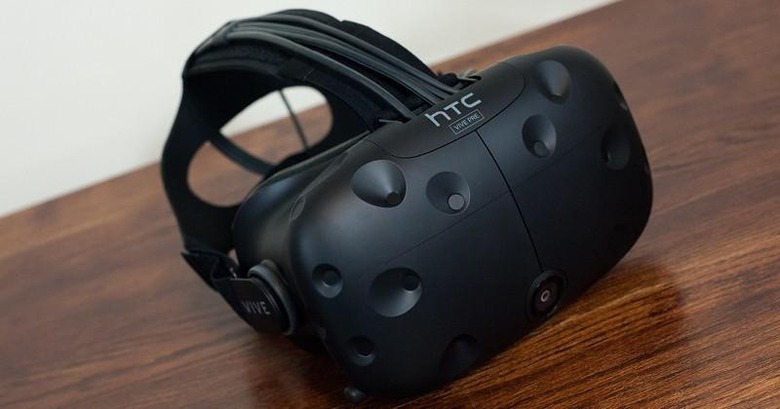Oculus DRM Backfires, Revive Now Lets You Pirate Games, Too
Friday, I talked at length about how Oculus seemed to be shooting themselves in the foot. This was largely in response to a new update for the Rift that included some particularly annoying DRM. This DRM checks to see if you have an Oculus Rift physically attached to your computer, and if it doesn't it prevents you from opening the game. Only a few days have passed, and their hard work has already been undone.
While the company stated that update "wasn't targeted at a specific hack," it's pretty obvious that this was in response to Revive. Revive is a tool that allowed users to play some games from the Oculus Store on the HTC Vive. Since it's a competing piece of hardware, it isn't all that surprising to hear that Oculus worked hard to find a way to shut them down. The only problem is that their plan backfired.
In their statement, Oculus claimed that the new DRM was put in place to prevent piracy of their games. Claiming that you're protecting against piracy is the "won't someone think of the children?" of the digital world. As long as you say you're protecting against piracy, then it seems to give you a legitimate reason for your actions. The only problem this time, was that instead of making piracy harder, their actions have actually made it easier to pirate games from the Oculus Store.
The creator of Revive started out with a pretty basic goal. He wanted people to be able to play Oculus Rift games on the Vive. He wanted to do so without breaking any sort of DRM, thus providing a completely legal means to play the games (as you'd need to purchase them from Oculus). His original plan worked out, and he was able to get a number of games working. And going from what Oculus founder Palmer Lucky had previously said, everyone should have been happy.

If customers buy a game from us, I don't care if they mod it to run on whatever they want. As I have said a million times (and counter to the current circlejerk), our goal is not to profit by locking people to only our hardware, said Lucky in a Reddit thread earlier this year. He went on to clarify, saying that "the software we create through Oculus Studios (using a mix of internal and external developers) are exclusive to the Oculus platform, not the Rift itself."
So essentially, if you buy a game from the Oculus store, you can do whatever you want with it. However, by adding new DRM that specifically checks for a Rift Headset, the company is going back on what he said. Make no mistake, games purchased from the Oculus Store are now 100% tied to the hardware, not just the Store.
But why does this move make it easier to pirate games? Well, over the weekend Revive version 0.5.2 was released. While it didn't manage to undo the damage caused by the Oculus Rift update 1.4, it got the ball rolling. It bypasses the Oculus Platform DRM in games that use the Unreal Engine.
Oculus is shooting itself in the foot with DRM
This is very important, because now in order to bypass the check that verifies whether you have a Rift plugged in or not, you have to bypass the checks that ensure that you actually purchased the games. So for the time being, if you can get your hands on a copy of one of these games (which we don't encourage or condone) you can play it without paying for it. And on the competition's hardware, no less.
The creator specified that breaking the DRM wasn't a path that he wanted to go down. However, by enforcing a type of DRM checks for the presence of the Rift hardware, it was the only way that he could continue with the Revive project. And since the founder of the company specifically stated that they condone modding games to run on other hardware, he really isn't doing anything unexpected.

This is bad news for Oculus. It's unclear how long it took them to implement the new DRM that locked Vive users from playing games from their store. However, we know that the latest version of Revive was put out on Saturday. That means it took only two days to undo all of their work on games using the Unreal Engine. He's already working on doing the same thing for Unity Engine games.
So it took one guy two days to bypass their DRM. The same DRM that has outraged gamers everywhere. And now, thanks to the DRM they implemented, games from their store can be easily pirated, to boot.
Before, if someone wanted to play an Oculus game on the Vive, they'd need to purchase the game from the store, and then use Revive to get it working. Now if you look in the right places, you'll be able to get a free, pirated version of the game, and use it on your Vive. And since many people are so upset with Oculus for implementing the DRM to begin with, you can bet that the ones doing it now will be choosing to pirate the game, rather than give their money to a company that goes back on their word.
